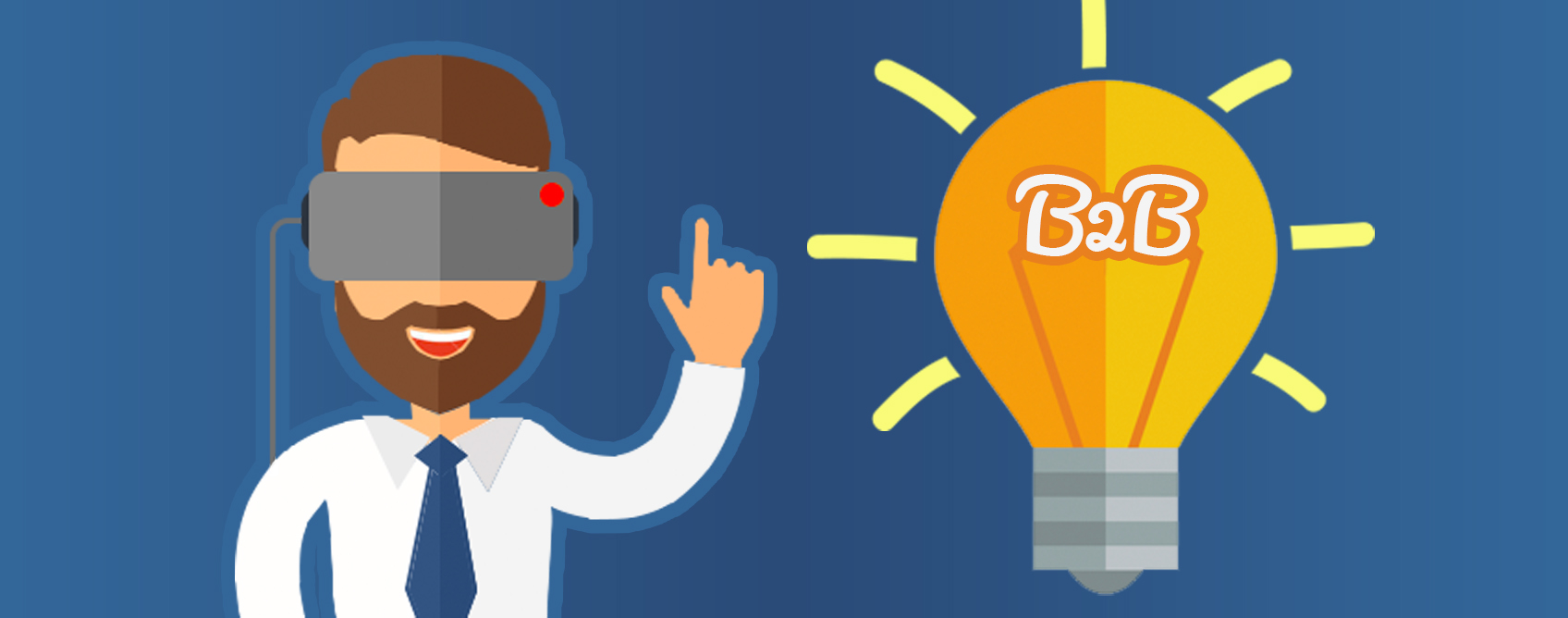
Four Ways You Can Start Using Virtual Reality in Your B2B Marketing
Author: Forge Team
13 April 2016
With virtual reality quickly expanding beyond the gaming world, sales are expected to skyrocket — from 14 million headsets and other devices sold globally this year to a projected 38 million in 2020. In 10 years, analysts say, the virtual reality (VR) market will be worth more than $60 billion.
For the B2B space, recent developments in virtual reality present growing marketing opportunities.As with other technologies, early adopters will gain a competitive advantage from using VR in ways that provide value to their audiences while maintaining brand authenticity. In the interest of progress (and a shot at convincing accounting to let us expense a set or two), we take a look at a few ways B2B companies can begin incorporating VR into their marketing efforts:
1. Product Demonstrations and Trade Shows
Virtual reality will completely change the landscape of trade shows, with cutting-edge product demonstrations taking center stage. For products that are still in the concept phase or that are too large or too complex to be shown physically in an expo hall, you can instead use a VR product demo to transport users into an appropriate environment.
Even for products that are physically present, the immersive experiences possible through VR can provide your prospective customers with innovative perspectives. By creating authentic usage scenarios, B2B companies can help customers visualize a variety of different uses for products, services and technologies. Companies also can provide a deeper look for customers with VR tours of manufacturing facilities, corporate campuses, and more.
2. Tutorials and Training
Virtual reality can help B2B companies advance the learning experience far beyond user manuals and online FAQs. Instead, your users can enter a virtual classroom, the manufacturing plant, or another environment where you can physically demonstrate how to use your product or service.
By making VR training and tutorials available, you’ll help your customers save significant money by potentially eliminating the need for large-scale travel — a definite marketing advantage. Customers who employ remote workers can use your VR training materials as a way to reach out and build engagement with team members who may be scattered across the globe.
3. Virtual Stores and Displays
In B2C marketing, product displays are truly an art form that can be customized for a vast array of audiences, environments, products, and market conditions. By using virtual reality, B2B companies can also tap into the marketing potential of product presentation in retail environments. By creating stores with shelving and merchandising displays, B2B companies can allow customers to visit and to test and purchase products.
4. Customer Service
While customer service probably isn’t part of your marketing department, it has an unquestionable impact on your bottom line. Poor customer service can drive your B2B clientele away from even the most useful product; once gone, disgruntled customers can be difficult to win back. By incorporating virtual reality into your company’s customer service efforts, you can allow customers to “speak” with a representative at all hours. VR also allows your representatives to help frustrated customers by walking them through processes and investigating problems in a hands-on manner.
Virtual reality is still a new frontier, and most consumers remain unfamiliar with it. But in light of the expected growth in the market, adoption will advance rapidly — and your competitors will be jumping on the VR bandwagon soon. To begin incorporating VR into your marketing efforts, consider the ways it can strengthen your customer experience – and when you’re ready to start brainstorming about some creative ways to knock their socks off, give us a call.
Forge’s Technology Marketing Group is exclusively focused on building brand and product awareness, conversion-focused campaigns, and sales enablement tools. To learn more about Forge or our Technology Marketing Group, email Jesse Strawbridge.